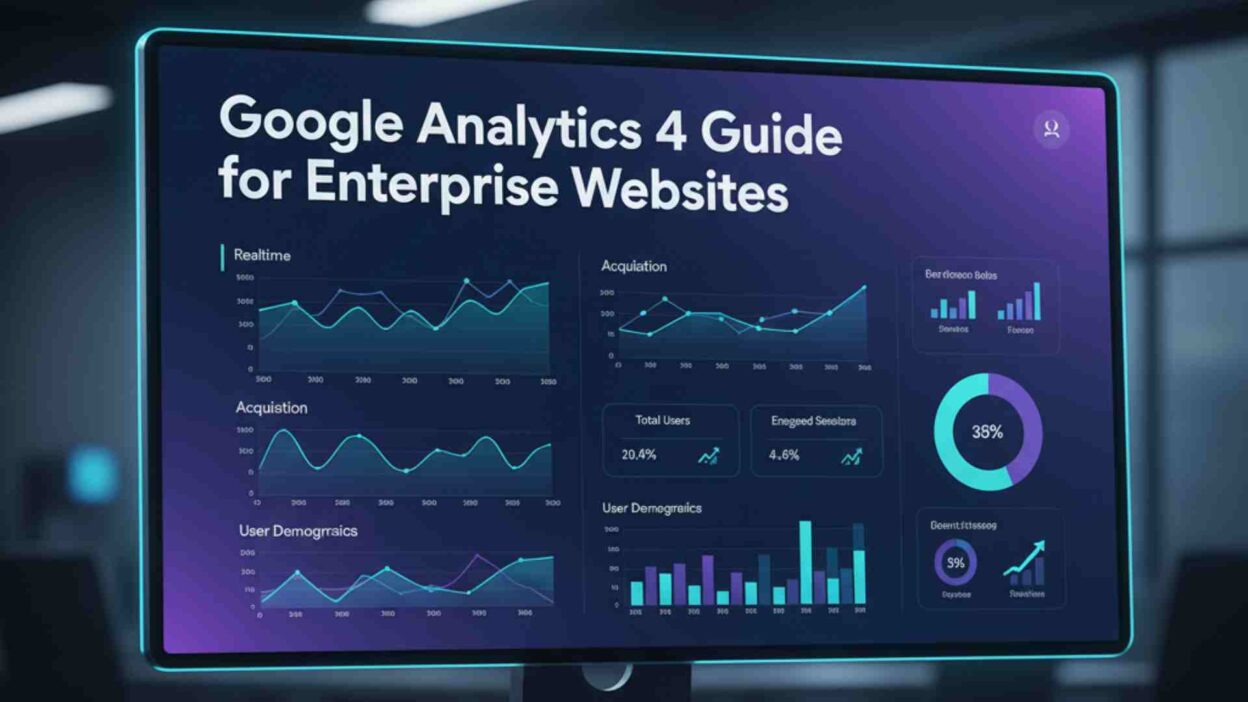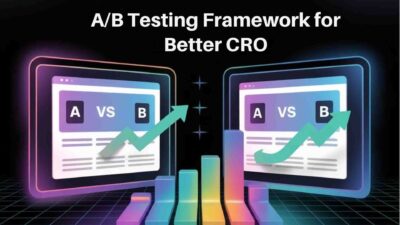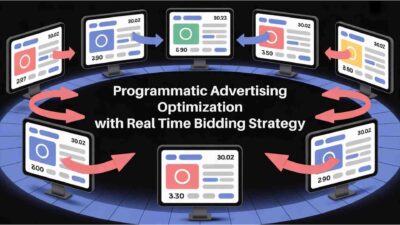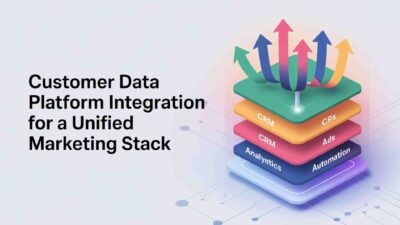TL;DR Google Analytics 4 implementation has become critical for enterprise websites seeking advanced data insights and user behavior tracking. Modern businesses require sophisticated analytics solutions that provide comprehensive performance metrics. Enterprise organizations face unique challenges when implementing GA4 across multiple domains and complex website structures.
Table of Contents
The shift from Universal Analytics to GA4 represents a fundamental change in how enterprises collect and analyze website data. GA4 enterprise setup involves configuring multiple data streams, custom events, and advanced measurement protocols. Companies that master these implementation strategies gain significant competitive advantages through enhanced data accuracy.
Understanding Google Analytics 4 for Enterprise Applications
What Makes GA4 Different for Enterprise Users
Google Analytics 4 implementation differs significantly from previous versions for enterprise organizations. The platform uses event-based tracking instead of session-based measurement models. Enterprise websites benefit from enhanced cross-platform tracking capabilities that connect mobile apps with web properties.
GA4 provides machine learning insights that automatically identify trends and anomalies in enterprise data. The platform offers advanced audience segmentation tools designed for complex business structures. Enterprise users can create custom dimensions and metrics that align with specific business objectives.
Key Enterprise Benefits of GA4 Implementation
Enhanced Data Collection Capabilities
- Cross-domain tracking for multi-brand enterprises
- Advanced ecommerce measurement for complex product catalogs
- Custom event tracking for unique business processes
- Real-time data processing for immediate insights
Advanced Reporting Features
- Predictive analytics for customer lifetime value
- Attribution modeling for multi-channel campaigns
- Audience overlap analysis for marketing optimization
- Custom report building with flexible dimensions
Privacy-Focused Measurement
- Cookieless tracking preparation for future regulations
- Enhanced data controls for GDPR compliance
- Advanced consent mode configuration
- IP anonymization and data retention controls
Pre-Implementation Planning for Enterprise GA4 Setup
Conducting Comprehensive Website Audit
Enterprise organizations must conduct thorough website audits before Google Analytics 4 implementation begins. The audit process identifies all tracking requirements across multiple domains and subdomains. Companies need to document existing Universal Analytics configurations for migration planning.
Website audit procedures include cataloging current custom events, goals, and conversion tracking setups. Enterprise teams should identify all stakeholders who require access to analytics data. The audit phase determines necessary custom dimensions and metrics for business reporting requirements.
Defining Enterprise Measurement Strategy
Business Objective Mapping
- Revenue tracking across multiple product lines
- Lead generation measurement for B2B operations
- Customer engagement metrics for service optimization
- Brand awareness tracking across marketing channels
Technical Requirements Assessment
- Server-side tracking capabilities evaluation
- Data layer implementation planning
- Third-party integration requirements analysis
- Custom reporting dashboard specifications
Stakeholder Alignment and Training Preparation
GA4 enterprise setup requires extensive stakeholder coordination across multiple departments. Marketing teams need training on new interface navigation and reporting capabilities. IT departments require technical implementation guidelines for proper data collection setup.
Sales teams benefit from understanding how GA4 tracks customer journey stages and conversion attribution. Executive stakeholders need customized dashboard training for strategic decision-making processes. Customer service departments can leverage GA4 insights for user experience optimization.
Step-by-Step Google Analytics 4 Implementation Process
Phase 1: Account Structure and Property Creation
Google Analytics 4 implementation begins with proper account structure planning for enterprise organizations. Create separate properties for different business units or geographical regions when necessary. Configure data streams for each website domain and mobile application requiring tracking.
Account Setup Best Practices:
- Use descriptive property names that reflect business structure
- Configure appropriate user permissions for different departments
- Set up data retention policies according to business requirements
- Enable Google Signals for enhanced demographic reporting
Phase 2: Enhanced Ecommerce Configuration
Enterprise websites require sophisticated ecommerce tracking that captures complex purchase behaviors. GA4 enterprise setup includes configuring enhanced ecommerce events for product catalog management. The implementation covers purchase tracking, refund processing, and subscription management events.
Essential Ecommerce Events:
- Purchase completion with detailed product information
- Add to cart events with product category tracking
- Checkout process step tracking for optimization
- Product view events with inventory level monitoring
Phase 3: Custom Event Implementation
Enterprise organizations need custom event tracking that aligns with specific business processes. Google Analytics 4 implementation includes creating events for lead form submissions, document downloads, and video engagement. Custom events provide insights into user behavior patterns unique to enterprise operations.
Custom Event Categories:
- Lead generation form completions
- Resource download tracking
- Video content engagement measurement
- Customer support interaction monitoring
Phase 4: Advanced Audience Configuration
GA4 enterprise setup involves creating sophisticated audience segments for targeted marketing campaigns. Enterprise audiences include high-value customers, potential churners, and cross-sell opportunity prospects. Advanced audience configuration enables personalized marketing automation and improved customer retention strategies.
Strategic Audience Segments:
- High lifetime value customers for premium services
- Inactive users requiring re-engagement campaigns
- Product category interests for cross-selling opportunities
- Geographic segments for localized marketing efforts
Advanced GA4 Features for Enterprise Organizations
Enhanced Attribution Modeling
Google Analytics 4 implementation provides advanced attribution modeling capabilities essential for enterprise marketing strategies. The platform offers data-driven attribution that analyzes all customer touchpoints across multiple channels. Enterprise organizations can compare different attribution models to understand true marketing channel performance.
Attribution modeling helps enterprises allocate marketing budgets more effectively across channels. GA4 provides insights into customer journey complexity and conversion path analysis. The platform identifies high-performing touchpoint combinations that drive enterprise revenue growth.
Predictive Analytics and Machine Learning
Customer Lifetime Value Prediction
GA4 enterprise setup includes predictive metrics that forecast customer value and churn probability. Machine learning algorithms analyze user behavior patterns to identify high-value prospects. Enterprise organizations can prioritize customer acquisition efforts based on predicted lifetime value calculations.
Purchase Probability Analysis
- Identification of users likely to convert within 7 days
- Product recommendation optimization based on behavior patterns
- Marketing campaign targeting for high-probability prospects
- Budget allocation optimization for maximum ROI
Cross-Platform Integration Capabilities
Enterprise organizations benefit from GA4’s ability to connect website data with mobile app analytics. Google Analytics 4 implementation creates unified customer profiles across all digital touchpoints. The platform provides comprehensive customer journey mapping from awareness to conversion across devices.
Cross-platform integration enables enterprise teams to understand omnichannel customer behavior patterns. GA4 connects offline conversion data with online user interactions for complete attribution analysis. The platform supports enterprise-level data import from CRM systems and other business applications.
Enterprise Data Governance and Privacy Management
GDPR and Privacy Regulation Compliance
GA4 enterprise setup includes comprehensive privacy controls that ensure regulatory compliance across global operations. The platform provides advanced consent management capabilities for European data protection requirements. Enterprise organizations can configure data retention periods according to regional privacy regulations.
Google Analytics 4 implementation supports enhanced data anonymization features that protect user privacy. The platform enables granular data control settings for different geographical regions. Enterprise teams can implement consent mode that respects user privacy choices while maintaining data collection capabilities.
Data Quality Management Strategies
Implementation Validation Procedures
- Real-time data stream monitoring for accuracy verification
- Custom event validation using Google Tag Assistant
- Cross-referencing GA4 data with other enterprise systems
- Regular data quality audits and correction processes
Data Integrity Monitoring
- Automated alerts for unusual data patterns or collection issues
- Monthly data accuracy reports for stakeholder review
- Integration testing for third-party data sources
- Performance monitoring for data collection speed and reliability
Security and Access Control Management
Enterprise GA4 implementation requires sophisticated user access management across large organizations. Security protocols include role-based permissions that align with organizational structure and data sensitivity levels. Advanced access controls prevent unauthorized data exposure while enabling necessary business insights.
Multi-factor authentication requirements ensure secure access to enterprise analytics data. Regular access audits identify and remove unnecessary user permissions for improved data security. Integration with enterprise single sign-on systems streamlines user management processes.
Reporting and Dashboard Optimization for Enterprises
Custom Report Creation for Executive Leadership
Google Analytics 4 implementation enables enterprise organizations to create executive-level dashboards that focus on strategic KPIs. Custom reports highlight revenue trends, customer acquisition costs, and market penetration metrics. Executive dashboards provide high-level insights without overwhelming detail complexity.
Executive Dashboard Components:
- Monthly recurring revenue trends and growth projections
- Customer acquisition cost by channel and campaign
- Market share analysis across product categories
- Competitive performance benchmarking metrics
Department-Specific Reporting Solutions
GA4 enterprise setup includes creating specialized reports for different organizational departments. Marketing teams require detailed campaign performance reports with attribution analysis. Sales departments need lead quality scoring and conversion funnel analysis.
Marketing Department Reports:
- Campaign performance across all digital channels
- Attribution analysis for multi-touch customer journeys
- Audience overlap analysis for campaign optimization
- Creative performance measurement and A/B testing results
Sales Team Analytics:
- Lead scoring based on website engagement behavior
- Product interest analysis for sales prioritization
- Customer journey stage identification and progression tracking
- Territory performance analysis for resource allocation
Real-Time Monitoring and Alert Systems
Enterprise organizations benefit from GA4’s real-time monitoring capabilities that provide immediate insights into website performance. Google Analytics 4 implementation includes setting up automated alerts for critical business metrics. Real-time dashboards enable rapid response to traffic spikes, technical issues, or conversion problems.
Alert configuration covers revenue thresholds, traffic anomalies, and conversion rate changes. Enterprise teams receive notifications when key performance indicators exceed normal ranges. Real-time monitoring enables proactive problem resolution and opportunity identification.
Integration Strategies for Enterprise Technology Stack
CRM System Integration and Data Synchronization
Google Analytics 4 implementation connects seamlessly with enterprise CRM systems for comprehensive customer data analysis. Integration enables closed-loop reporting that tracks customers from website visit to final purchase and beyond. GA4 data enhances CRM profiles with detailed digital behavior insights.
CRM Integration Benefits:
- Complete customer journey tracking from awareness to retention
- Lead scoring enhancement using website behavior data
- Sales team insights into prospect digital engagement patterns
- Customer lifetime value calculation across all touchpoints
Marketing Automation Platform Connectivity
GA4 enterprise setup includes integration with marketing automation platforms for enhanced campaign personalization. Connected systems enable dynamic audience creation based on website behavior patterns. Marketing automation workflows can trigger based on specific GA4 events and user segments.
Integration allows for sophisticated email marketing campaigns that respond to website behavior in real-time. Enterprise organizations can create nurture campaigns that adapt based on GA4 audience characteristics. Advanced segmentation capabilities improve marketing automation effectiveness and ROI.
Business Intelligence Tool Integration
Enterprise organizations often require GA4 data integration with existing business intelligence platforms. Google Analytics 4 implementation supports data export to enterprise data warehouses and visualization tools. Integration enables comprehensive business reporting that combines website analytics with other operational data sources.
BI Integration Capabilities:
- Automated data export to enterprise data warehouses
- Custom API connections for real-time data synchronization
- Advanced visualization creation using GA4 data sources
- Cross-platform analytics for comprehensive business insights
Performance Optimization and Troubleshooting
Data Collection Optimization Strategies
Google Analytics 4 implementation requires ongoing optimization to ensure accurate data collection across enterprise websites. Performance optimization includes minimizing page load impact while maintaining comprehensive tracking capabilities. Enterprise organizations must balance data collection depth with website performance requirements.
Optimization Techniques:
- Server-side tracking implementation for reduced client-side load
- Event sampling configuration for high-traffic enterprise websites
- Data layer optimization for improved tracking accuracy
- Custom tracking implementation for unique business processes
Common Implementation Challenges and Solutions
Enterprise GA4 setup often encounters complex technical challenges that require specialized solutions. Common issues include cross-domain tracking problems, duplicate event firing, and data discrepancies between systems. Systematic troubleshooting approaches resolve implementation problems quickly and effectively.
Challenge Resolution Strategies:
- Cross-domain tracking validation using Google Tag Assistant
- Event debugging through GA4 DebugView interface
- Data accuracy verification through multiple validation methods
- Performance impact assessment and optimization procedures
Ongoing Maintenance and Updates
GA4 enterprise setup requires continuous maintenance to ensure optimal performance and data accuracy. Regular updates include new feature adoption, configuration adjustments, and user training programs. Enterprise organizations must establish maintenance schedules that minimize disruption while maximizing analytics capabilities.
Monthly maintenance activities include data quality audits, user access reviews, and performance optimization assessments. Quarterly reviews evaluate new GA4 features for potential enterprise implementation benefits. Annual strategic reviews align analytics capabilities with evolving business objectives and requirements.
Measuring ROI and Success Metrics
Key Performance Indicators for Enterprise GA4
Google Analytics 4 implementation success requires establishing clear KPIs that align with enterprise business objectives. Success metrics include data accuracy improvements, user adoption rates, and decision-making enhancement across departments. ROI measurement considers both direct revenue impact and operational efficiency gains.
Success Measurement Framework:
- Data accuracy comparison between old and new analytics systems
- User engagement metrics showing improved insights utilization
- Decision-making speed improvements across enterprise departments
- Marketing campaign optimization results and revenue attribution
Long-Term Value Assessment
Enterprise organizations must evaluate long-term value creation from GA4 enterprise setup investments. Value assessment includes quantifying improved customer insights, marketing efficiency gains, and competitive advantage development. Long-term ROI considers strategic benefits beyond immediate operational improvements.
Value Creation Areas:
- Customer acquisition cost reduction through improved targeting
- Revenue growth from enhanced personalization capabilities
- Operational efficiency gains from automated reporting and insights
- Competitive advantage development through advanced analytics capabilities
Future-Proofing Your Enterprise GA4 Implementation
Preparing for Cookieless Future
Google Analytics 4 implementation positions enterprise organizations for the cookieless advertising landscape. GA4’s first-party data focus and machine learning capabilities provide sustainable tracking solutions. Enterprise organizations must prepare data collection strategies that remain effective without third-party cookies.
Cookieless preparation includes enhanced first-party data collection, customer identity resolution, and consent management optimization. GA4 enterprise setup should emphasize sustainable tracking methods that respect user privacy while maintaining business insights. Future-ready implementations focus on data quality over quantity.
Emerging Technology Integration
Enterprise GA4 implementations must consider integration with emerging technologies like artificial intelligence and machine learning platforms. Future developments may include enhanced predictive analytics, automated optimization recommendations, and advanced customer behavior modeling. Scalable implementation architectures accommodate future technology integration requirements.
Future Technology Considerations:
- AI-powered customer journey optimization
- Advanced predictive modeling for business forecasting
- Automated marketing campaign optimization based on GA4 insights
- Enhanced personalization through machine learning integration
Read More: How to Automate Data Entry with AI
Conclusion

Google Analytics 4 implementation represents a strategic investment that transforms how enterprise organizations understand and optimize their digital presence. Successful GA4 enterprise setup requires comprehensive planning, stakeholder alignment, and systematic implementation approaches that address unique business requirements.
The transition from Universal Analytics to GA4 provides enterprise organizations with enhanced data collection capabilities, advanced reporting features, and privacy-focused measurement solutions. Proper implementation delivers significant competitive advantages through improved customer insights, marketing optimization, and strategic decision-making capabilities.
Enterprise organizations that invest in a comprehensive Google Analytics 4 implementation position themselves for long-term success in an increasingly data-driven business environment. The platform’s advanced features, machine learning capabilities, and future-ready architecture provide sustainable analytics solutions that grow with business needs.
The key to successful GA4 enterprise setup lies in thorough planning, systematic implementation, and ongoing optimization that aligns with business objectives. Organizations that follow best practices for implementation, training, and maintenance maximize their return on investment while building competitive advantages through superior data insights and customer understanding.





